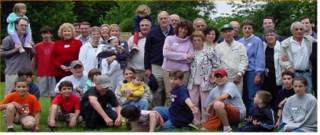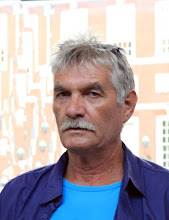Adolf Hitler Nazi Third Reich in Color
RelatioNet
|
|
Saturday, June 17, 2006
Monday, April 04, 2005
Monday, September 27, 2004
Tuesday, September 14, 2004
עלו ברשת: בלוג של ניצולים
האתר המיוחד הזה הוצג לראשונה בפני משתתפי הכינוס לגיניאולוגיה יהודית בירושלים: ניסיון לרתום את משאבי הרשת הרבים לטובת חיפוש מידע אודות חברים ובני משפחה, שהקשר איתם אבד מאז מלחמת העולם השנייה.
ריליישן-נט משתמש בתכונות הבלוג, יומן הרשת הפופולרי, על מנת לייצר מאגר של דיווחים וראיונות עם ניצולי שואה, שיכללו מילות מפתח ושמות רבים, וכך יובטח מיקומם בדפי תוצאות החיפוש של המנועים הגדולים.
Monday, August 02, 2004
Sunday, July 11, 2004
Haaretz - Israel News - Harnessing the Internet in Holocaust search
Haaretz - Israel News - Harnessing the Internet in Holocaust search
Friday, June 18, 2004
The RelatioNet Project
RelatioNet is an international collaborative project of applying the Internet for reunion of family branches that lost each other during the holocaust. RelatioNet attempts to use the last window of opportunity that we have – the next 5 years in which many survivors are still alive, and the Internet is already present in every home.
Holocaust survivors strive to meet lost relatives. There are 300,000 living survivors, by the Yad Vashem definition that “a survivor is a Jew who lived in Europe during the Crystal Night”. Those who were over 8 years old then, remember. Some of them are relatives whose families scattered during the war and lost one another. RelatioNet will make use of all available survivor databases and will compile lists of survivors by their places of residence today. High school students will be assigned, as a part of their syllabus, to locate, interview and document survivors in their community. The survivors will be described in advanced, searchable, Internet forms, that will be uploaded to the net immediately upon their creation. The student-survivor meetings will be in 2-3 iterations, as the information provided by the survivor in one session will be enhanced through research and correlation towards the next session. The accumulated raw data on the Internet will be accessible to all search engines and researchers, and will complement the formatted, institutional scientific databases.
Zvi Schwartzman June 1, 2004 Israel





